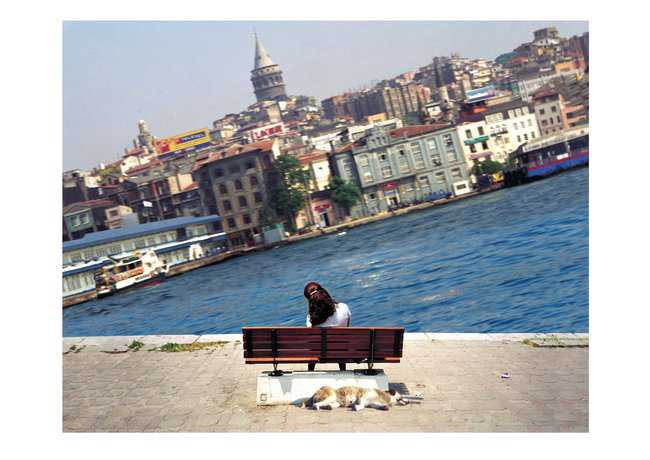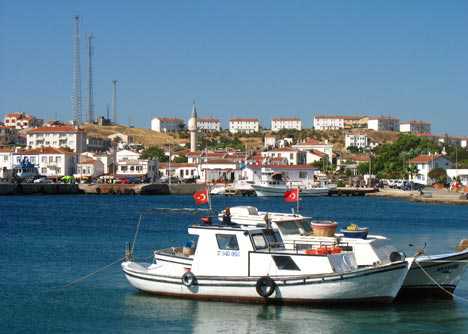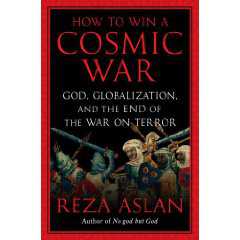Turkey’s recent and ongoing rapprochement with Armenia, addressed in last week’s Caucasus Update from the Turkish angle, has implications that could reverberate throughout the South Caucasus and beyond. Arguably, the normalisation of ties between Armenia and Turkey would be an event of equivalent regional significance as the Russo-Georgian war of last August.
Details remain unclear. This diplomatic murkiness testifies to just how explosive the issue has become for the Turkish, Azerbaijani and Armenian governments. The outlines, however, are apparent – that Turkey and Armenia are expected to begin opening their mutual border and establishing diplomatic relations probably sooner than later. The Turkish overtures are contingent on two things: firstly, that US President Barack Obama does not openly acknowledge the Armenian ‘genocide’, and secondly (and much less publicly) that Armenia renounces or at least quietly suspends its own push for genocide recognition and its long-dormant claims to Turkey’s eastern provinces as part of its “Greater Armenia” concept.
A third condition – that any formal moves are also conditional on Armenian progress towards removing its troops from Nagorno-Karabakh and the territories around it – is unconfirmed. The very idea that Turkey would go through with the border talks without attaching any conditions on Karabakh has provoked fury in Azerbaijan, especially since Turkey sealed the border in 1993 in response to the Armenian occupation of the regions, a reality which has clearly not changed. In Baku, the issue has created a rare patch of common ground for the government and the opposition (APA, April 7).
Essentially, what has developed appears to be an enormous three-way game. Firstly, Turkey’s determination to go ahead with the thaw – including the establishment of an alleged framework for talks in the areas of border openings, diplomatic representations, and dispute commissions (Wall Street Journal, April 2) – has been curbed by its recognition of the obvious, and urgent, need to keep their ethnic and linguistic brethren in Azerbaijan on side. Turkish Prime Minister Recep Tayyip Erdogan said on April 7 that “The Azerbaijani-Armenian dispute should be resolved first. Then, problems between Turkey and Armenia can be solved, too”. According to Today’s Zaman, Turkey’s bluff may be to limit the thaw to occasional border openings and limited diplomatic contact until October, when a World Cup qualifying match between Armenia and Turkey (the return leg of the fixture which began the whole process last September with Turkish President’s visit to Yerevan) is due to take place in Istanbul (Today’s Zaman, April 9). This would give Ankara time to push Azerbaijan and Armenia into a compromise over Karabakh, probably under the auspices of Turkey’s much-discussed Caucasus Stability and Cooperation Platform.
Secondly, Yerevan’s strategy is to decouple the issue of the Turkish border from the Karabakh issue, ensuring that Armenia receives the economic and political benefits of relations with Turkey without having to concede ground vis-à-vis Azerbaijan. Foreign Minister Edward Nalbandian clearly illustrated this bluff on April 5 when he warned Mr. Erdogan that attempts to link the two issues were an attempt to impede progress (RFE/RL, April 7).
Clearly, Yerevan anticipates that Turkey is unwilling to exasperate President Obama and – more importantly – undermine its role as a regional stabiliser by allowing the talks to fail. It is also attempting to ensure that the status quo in Karabakh is maintained. Armenia has no particular interest in altering the situation in the disputed territories hoping that one day Azerbaijan will be demanded by the world to reconcile with the loss of its territories (a belief that has been reinforced by the recognition of Kosovo). So without a continuing Turkish blockade Yerevan is unlikely to offer any concessions to Baku, and may in time feel emboldened enough to start demanding that Azerbaijan back down.
Azerbaijan, thirdly, is hoping that Turkey is not willing to betray its Turkic-speaking ally. However, it reflects the level of concern in Baku that Azerbaijan is not simply relying on ethnic and linguistic solidarity but has been actively (if unofficially) challenging Turkey’s strategic interests. President Ilham Aliyev reportedly said that if Turkey made a deal with Armenia that did not consider Karabakh, Azerbaijan could cut the gas supplies to Turkey (Jamestown Eurasia Daily Monitor, April 9). In this light one should consider recent cooperation between Baku and Russian energy giant Gazprom and discussions between President Aliyev and Ukrainian President Viktor Yuschenko on alternative gas routes via the Black Sea: in other words, the White Stream pipeline across the Black Sea to Ukraine, which would avoid Turkey (APA, April 10). Given these recent moves, it seems very likely that Azerbaijan will begin seriously reconsidering its participation in the planned Nabucco pipeline to Europe, a project with which it has already grown impatient.
More significantly, the country could start to reconsider its whole geopolitical orientation. President Aliyev hinted at both of these possibilities at a meeting of Azerbaijan’s Security Council on April 6, in which he stressed the independence of Baku’s foreign policy and the importance of Azerbaijan for the execution of any transnational energy projects in the region (APA, April 6). The voices are getting louder in Baku arguing that the policy of trusting Turkey and the West to support it over Karabakh, incurring Russian displeasure in the process, has achieved nothing. Azerbaijan’s confidence in the West was already damaged by the Russo-Georgian war, in which Washington and Brussels indicated that they would not respond materially to any conflicts in the post-Soviet space. Turkey’s decision to negotiate with Armenia, and the vocal support of the US and the EU for the talks, has struck a further blow to Baku’s faith in the West.
So why not turn towards Russia? Turkey clearly has diminished its leverage in any Karabakh peace talks and the OSCE’s Minsk Group has made painfully slow progress. The only actor who possesses clear and significant influence in the peace process is Russia, Armenia’s most important ally. Russia is one of the Minsk Group co-chairs but has demonstrated a willingness to act more or less unilaterally, for instance in the Moscow Declaration which it brokered between the two sides last November. Although few Azerbaijanis desire the return of Russian suzerainty, Karabakh is predominant. If Russia can help solve the conflict in a way which is acceptable to Azerbaijan, then all other considerations are secondary. Gas supplies and the cooling of ties with NATO and Washington are a small price to pay.
The West, and Turkey, must recognise the implications of the Armenian thaw. Clearly, peace in the Caucasus is desirable. Closed borders and mutual distrust are not to be welcomed. But if Turkey’s AKP party rushes ahead, it will embolden nationalists at home who could impede the country’s progress towards the EU. This sounds counter-intuitive: opening the border with Armenia is expected to boost Turkey’s EU accession hopes. But this analysis is from Brussels’ perspective. Domestically, the AKP is weaker than before after March’s local elections, and hasty, unpopular foreign policy gestures may cripple its hopes for the 2011 general election (especially if the EU continues to block accession, regardless of the thaw) and give nationalists the upper hand.
But even more concerning is the danger that Turkey and the West could ‘lose’ Azerbaijan to Russia. This would not only sound the death knell for Nabucco, but it would also alter the geopolitical profile of the whole of Eurasia and pose a new and serious risk in the Karabakh conflict. Patience is a virtue – Ankara, as well as Brussels and Washington, should bear this maxim in mind.





